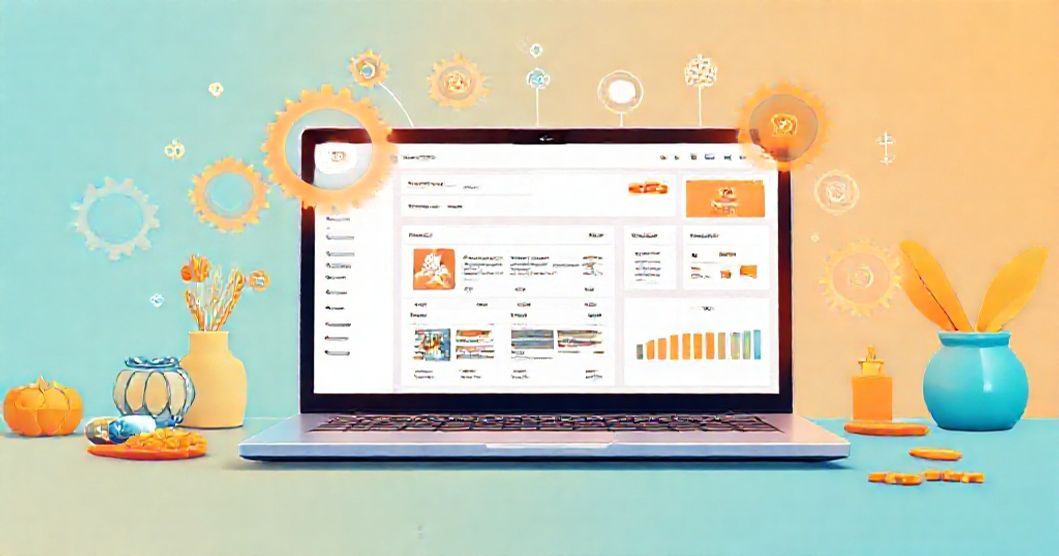In the dynamic world of online selling, managing an Etsy shop effectively requires more than just creating beautiful products. Understanding and leveraging Etsy integrations is paramount for streamlining operations, enhancing efficiency, and ultimately fostering business growth. These powerful tools connect your Etsy store with various external platforms, automating routine tasks and providing valuable insights that can transform how you manage inventory, process orders, handle shipping, and even manage your finances. Exploring the right integrations can significantly reduce manual effort, minimize errors, and free up valuable time for creative endeavors and customer engagement.
Understanding Etsy Integrations: Enhancing Your Selling Journey
Etsy integrations refer to third-party software applications or platforms that connect directly with your Etsy shop. Their primary purpose is to extend the functionality of the Etsy platform, offering specialized features that are not natively available. These integrations are designed to simplify complex processes, from inventory synchronization across multiple sales channels to automated shipping label generation. By bridging the gap between your Etsy store and other essential business tools, integrations empower sellers to manage their operations more efficiently, scale their businesses, and focus on what they do best: creating and selling unique items.
Key Types of Etsy Integrations: Streamlining Operations
The landscape of Etsy integrations is diverse, catering to various aspects of an online business. Each type addresses specific challenges, offering solutions that enhance different operational areas. Sellers often combine multiple integration types to create a comprehensive system tailored to their unique business needs. Understanding these categories is the first step toward building a more robust and automated Etsy selling experience, leading to improved customer satisfaction and increased productivity for sellers aiming to optimize their workflow and expand their market reach.
Inventory Management Integrations: Keeping Track of Stock
For Etsy sellers, accurate inventory management is crucial to avoid overselling and ensure customer satisfaction. Inventory management integrations automate the tracking of stock levels across all your sales channels, including your Etsy shop, personal website, or other marketplaces. When an item sells on one platform, the integration automatically updates the stock count on all others, preventing discrepancies. Advanced solutions often provide detailed sales reports, reorder alerts, and even demand forecasting, helping sellers make informed decisions about product replenishment. Investing in these tools prevents stockouts and reduces manual inventory reconciliation efforts, often saving considerable time.
Shipping and Fulfillment Integrations: Efficient Delivery Solutions
Shipping and fulfillment are critical components of any e-commerce business, and Etsy integrations in this area significantly simplify the process. These tools allow sellers to automatically import Etsy orders, compare shipping rates from various carriers, print shipping labels in bulk, and even generate customs forms for international orders. Many integrations also offer automated tracking updates sent directly to customers, enhancing the post-purchase experience. By streamlining these tasks, sellers can reduce shipping errors, save money on postage, and expedite package delivery, which directly contributes to higher customer ratings and repeat business.
Accounting and Financial Integrations: Simplifying Bookkeeping
Managing finances can be a daunting task for small business owners, but Etsy accounting integrations make it considerably easier. These tools connect your Etsy sales data with popular accounting software, automatically categorizing transactions, tracking expenses, and generating financial reports. This automation helps sellers maintain accurate records for tax purposes, monitor profitability, and gain a clear overview of their business’s financial health. Some integrations also facilitate expense tracking and bank reconciliation, providing a comprehensive financial management solution that saves time and reduces the likelihood of manual errors in bookkeeping processes.
Print-on-Demand (POD) and Dropshipping Integrations: Expanding Product Lines
Print-on-demand and dropshipping integrations offer Etsy sellers a unique opportunity to expand their product offerings without holding physical inventory. These integrations connect your Etsy store with third-party suppliers who handle product creation, printing, and shipping directly to the customer. This model allows sellers to offer a wide range of customizable products, such as apparel, mugs, or art prints, with minimal upfront investment. The integration automates the order fulfillment process, sending customer orders directly to the supplier. This approach is particularly beneficial for artists and designers looking to monetize their creations without the complexities of production and logistics.
Customer Relationship Management (CRM) Integrations: Enhancing Buyer Engagement
Building strong customer relationships is vital for long-term success on Etsy. CRM integrations help sellers manage customer interactions, track purchase history, and personalize communication. These tools can automate follow-up emails, send thank-you notes, or remind customers about abandoned carts, fostering loyalty and encouraging repeat purchases. By centralizing customer data, sellers gain a deeper understanding of buyer preferences and behaviors, enabling them to tailor marketing efforts and provide exceptional service. This level of personalized engagement often leads to increased customer satisfaction and positive reviews, which are invaluable for an Etsy shop’s reputation.
Choosing the Right Etsy Integration: Factors to Consider
Selecting the most suitable Etsy integrations requires careful consideration of several factors specific to your business needs. First, assess your current pain points: are you struggling with inventory accuracy, slow shipping, or complex bookkeeping? Identify the areas where automation would provide the most significant benefit. Research different solutions, paying close attention to their features, pricing models, and user reviews. Compatibility with your existing tools and ease of use are also crucial. Some integrations offer free trials, allowing you to test their functionality before committing to a subscription, ensuring they align with your operational requirements.
Maximizing Profitability with Etsy Integrations: Strategic Insights
Etsy integrations are not just about efficiency; they are powerful tools for maximizing profitability. By automating time-consuming tasks, sellers can dedicate more hours to product development, marketing, and customer service, which directly impact sales. Reducing manual errors in inventory and shipping minimizes losses from overselling or incorrect deliveries. Furthermore, integrations provide invaluable data through detailed reports, allowing sellers to identify best-selling products, understand customer trends, and optimize pricing strategies. For example, a robust inventory integration might cost around $15-$50 per month, but the time saved and errors prevented can easily outweigh this expenditure, significantly boosting the overall profitability of an Etsy business.
Conclusion: Empowering Your Etsy Business with Smart Integrations
Embracing Etsy integrations is a strategic move for any seller aiming to professionalize and scale their online craft business. These tools offer tangible benefits, from simplifying complex inventory and shipping logistics to streamlining financial management and enhancing customer engagement. By carefully selecting and implementing the right integrations, sellers can achieve unprecedented levels of efficiency, accuracy, and insight into their operations. The journey towards a more organized, profitable, and enjoyable Etsy selling experience is well within reach, empowered by the intelligent application of these powerful third-party solutions that truly transform the day-to-day management of an online store.






